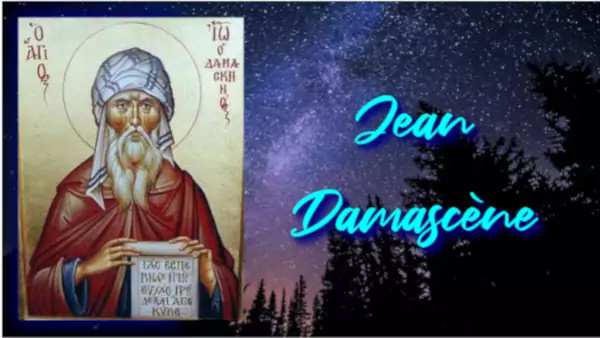December 04 - John Damascene or John of Damascus, whose real name was Jean Mansour, was born into a prominent Syriac Christian family in Damascus in the 7th century. Until the age of 12, Jean apparently received a traditional education. His father wanted him to learn, not only Muslim works, but also those of the Greeks.
John's father served the Muslim caliphs, collecting taxes throughout the Middle East. After his father's death, John also served as a senior officer in the court of the Umayyad Caliphate. At the beginning of the eighth century, iconoclasm, a movement to ban prayer before icons, appeared in the Byzantine court. In 726, Emperor Leo III issued his first edict against the veneration of images and their display in public places. A talented writer of the environment of the Caliph's court, John of Damascus defended the icons in three separate publications. To counter his influence, Leo III allegedly had forged documents produced implicating John Damascene in a plan to attack Damascus. Called to account for these writings by the Caliph, John was unable to convince him and was sentenced to have his right hand severed and to leave the Caliphate.
Following his insistent prayer to the Virgin Mary, in front of an icon of the Virgin Mary, he had his hand glued back together and presented himself before the Caliph with both hands. The Caliph was deeply impressed and understood that he was innocent and wanted to reinstate him in his position, but John refused, renounced his charges and became a monk at the Laure of St. Sabas near Jerusalem. There he studied, wrote and preached. He was ordained a priest there in 735.
Prolific author, we have under his name many texts. In addition to his liturgical canons, which are still sung in the Orthodox Church and which make him one of the principal Byzantine hymnographers, he wrote a theological sum known as De fide orthodoxa, as well as homilies on the Virgin Mary. He died on Saint Barbara's Day, December 4, 749, and was declared Doctor of the Catholic Church by Pope Leo XIII in 1890.








